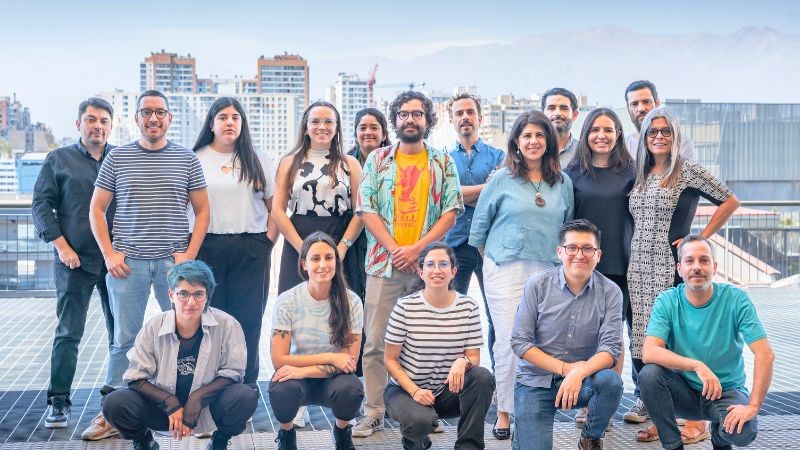Intensive Workshop Trains Latin American Investigative Journalists in Open-Source Intelligence
The course was a collaboration between the J-School, UDP, CGC Santiago, and the Latin American Center for Investigative Journalism (CLIP).

Fourteen Latin American investigative journalists embarked on an intensive week of training in March, enhancing their skills in open-source intelligence (OSINT) techniques. The Latin American Investigative Journalism Workshop was a collaborative effort brought together by Columbia University's Graduate School of Journalism, Universidad Diego Portales' (UDP) School of Journalism, the Latin American Center for Investigative Journalism (CLIP), and Columbia Global Center Santiago.
The workshop delved deep into the art of OSINT, a rigorous research methodology that leverages publicly available online content and information. Similar to solving a complex puzzle, journalists mastered intricate search techniques across diverse websites and free applications, meticulously assembling their findings. This approach centers on precision, demanding a keen eye for detail.
The primary goal was to equip the journalists with advanced search techniques and the analytical skills required to transform their insights into impactful investigations. Over the course of one week between March 18 and 23, participants were immersed in real-world investigative projects, learning how to harness global resources and effectively organize, visualize, and utilize data to craft compelling narratives. Under the guidance of renowned professionals like Giannina Segnini (co-founder of CLIP and director of Columbia's MS in Data Journalism), Jorge Rojas (academic at UDP’s Journalism School), and Alberto Arellano (director of UDP's Center for Investigative Research and Projects, CIP). CLIP also provided expert guidance with María Teresa Ronderos (co-founder and director), Andrés Bermúdez (JRN’09, journalist and editor), Rigoberto Carvajal (data engineer), and Pablo Medina (researcher).
The curriculum covered a wide range of topics, arming participants with the tools needed to conduct thorough investigations. Some key areas included: crucial legal, physical, and comprehensive security measures for high-risk investigations; digital security techniques, encrypted communication tools, and safe online navigation; strategies for investigating individuals, companies, and NGOs; techniques for using social networks and internet tools to uncover corruption; practical knowledge for conducting visual and satellite photo investigations, including determining the origin, geolocation, and potential manipulation of images and videos. Pablo Medina and Andrés Bermúdez also introduced NINA, a tool developed by CLIP that facilitates cross-referencing information across multiple databases.
The workshop concluded with participants expressing their satisfaction. Marlene Vallejos commented, "This was a very valuable experience, exceeding my expectations. I leave here with many new tools and knowledge." Estefania Celi shared similar thoughts, highlighting the level of the instructors: "The workshop leaders were of the highest-level. This course has equipped me with a set of new journalistic tools." Esteban González and Federico Teijeiro confirmed the positive sentiment, with González leaving "happy and filled with new ideas," and Teijeiro adding, "Beyond the knowledge gained and its application to my project, the exchange of methodologies and experiences over these days was truly enriching."
From the instructors' perspective, Alberto Arellano highlighted the opportunity to train more than 10 journalists in investigation techniques on different topics, and Fernando Morales, director of UDP's School of Journalism, stated it was an honor for the School to host the workshop, welcoming CLIP instructors and Columbia faculty members Giannina Segnini and Elena Cabral, Assistant Dean of Student, Academic, and International Programs at the J-School, who coordinated the execution of the course along with Chilean alumna Muriel Alarcón (JRN’20).